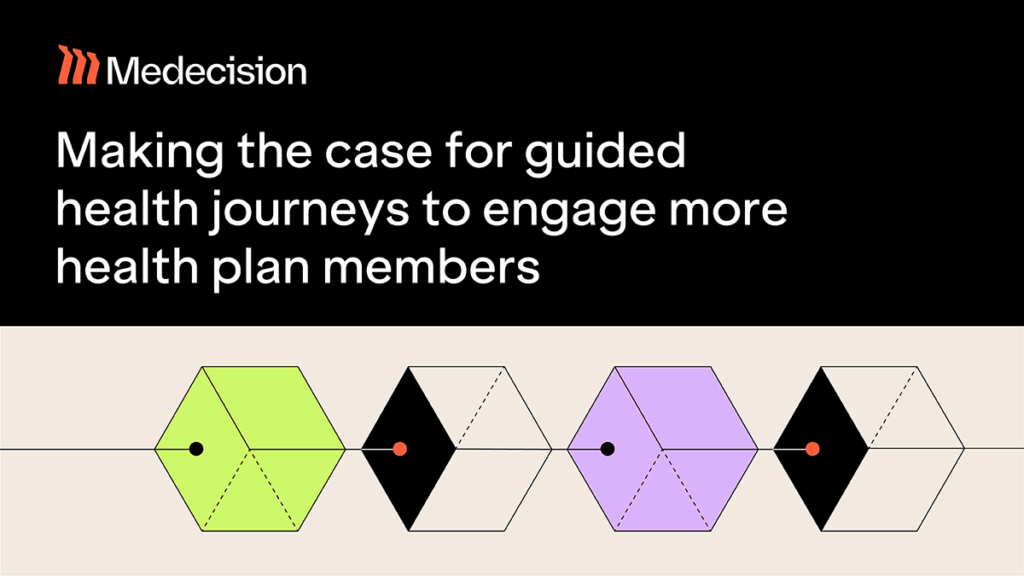
Medecision research illustrates that nearly all health plan leaders agree that generating automated digital journeys is valuable to high-risk members (98%) and rising-risk members (100%) before they become high-risk. But the survey results also indicate a wide gap between leaders who understand the value of digital care management (CM) and those health plans that are currently leveraging digital technologies to transform CM programs.
That said, strategically scaling CM programs to reach more high-risk and rising-risk members before they become high-risk is an important opportunity for health plans. Every year, approximately 20% of rising-risk individuals become high-risk. Rising-risk members, on average, have four chronic conditions and are prescribed nine medications, often with adherence challenges, according to Johns Hopkins Medicine. Experts from the university explain: “If rising-risk [members] are identified and targeted with appropriate interventions, the likelihood of their condition improving increases and, as a result, prevents the [member] from moving up the risk pyramid, incurring more costs, and experiencing worsened health.”
The Medecision research, however, reveals that many health plans are missing opportunities to reach a larger base of their member populations. More than one-third of the 53 participating executives say their health plan accommodates fewer than 40% of high-risk members, and half engage fewer than 40% of rising-risk members with their CM programs.

Guided Health Journeys: Reach More Members Across All Risk Profiles
To learn more about scaling CM digitally – via guided health journeys – to help more high-risk members and proactively engage rising-risk individuals before they become high-risk, read the new Becker’s Payer Issues report, The Untapped Digital Care Management Opportunity for Health Plans.
Download the report
Their limited use of guided health journeys is among the reasons so many health plans are not proactively reaching more members across all risk profiles. Only 26% of survey respondents say their organization is running digital-only CM outreach to help high-risk members, and just 23% are doing so to engage rising-risk individuals who could move up into the high-risk category.
The critical next step to transforming member experiences is integrating multiple data sources into CM workflows as well as digital, telephonic, and hybrid engagement initiatives to create contextual awareness of where members are in their health journey. That contextual awareness calls for dramatically improved ‘intelligent personalization’ derived from data and analytics that produce insights CM teams can act upon in real time.
For personalized CM initiatives to be as effective as possible, health plans also need those technologies to strategically integrate more of the data they already have into CM workflows and engagement initiatives. By integrating social determinants of health, remote monitoring, fitness tracking, ADT, call center activity, and more information sources into CM workflows, health plans position themselves to personalize digital CM programs and outreach with guided health journeys.
“The technology is here. We’re unlocking the potential of bringing disparate data sources together,” says Katherine Schneider, MD, MPhil., FAAFP, Chief Medical Officer, Medecision. “Health plans need a true platform that ingests data and drives it into real workflows — that’s where technology can help.”
Intelligent personalization is now a high investment priority among health plans, new survey findings from Ernst & Young show. In the firm’s EY Health Pulse Survey June 2024, 91% of health plan leaders indicate their organization is already investing or planning to invest in data integration for digital health tools to advance personalization. According to Boston Consulting Group, health plans that have personalized their programs improved member experience by 10%, increased care quality by 20% to 25%, and reduced administrative costs by 10%—all within 6 to 12 months of beginning the personalization efforts.
Further, the Medecision research found that more than 96% of health plan executives say personalization has a positive impact on reaching more members in the CM process, improving member trust and outcomes, increasing care manager efficiencies, creating guided health journeys, and reducing unnecessary utilization.
If your health plan is among those currently missing opportunities to reduce expenses and improve health outcomes with digital tools that strategically expand CM programs, contact us to schedule a demo today.


About The Author: Medecision
Medecision is a leader in cloud-based, data-powered healthcare solutions, enabling risk-bearing entities to achieve improved health outcomes, optimized medical costs, reduced administrative costs, and personalized engagement. Our Aerial platform supports over 10% of the U.S. population, marking a significant milestone in advancing healthcare efficiency and effectiveness.
More posts by Medecision